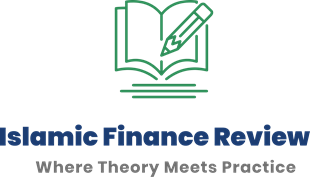
Why London Is the Leading Hub for Islamic Finance in the West — And What’s Missing
- Post by: wp-islamicfinancereviewcouk
- September 11, 2025
- No Comment
“وَأَوْفُوا بِالْعَهْدِ ۖ إِنَّ الْعَهْدَ كَانَ مَسْئُولًا”
“And fulfill [every] commitment. Indeed, the commitment is ever [that about which one will be] questioned.”
— Surah Al-Isra (17:34)
This verse reminds us that Islamic finance is built on trust, integrity, and accountability — principles that are now shaping one of the world’s most influential financial centres.
Introduction: A Global Leader With Local Gaps
The United Kingdom has emerged as the top non-Muslim country for Islamic finance, home to over 65 listed sukuk, specialist banks, and Shariah-compliant funds. London’s position as a global Islamic finance hub is undisputed.
But here’s the paradox: while London promotes Islamic finance to the world, domestic engagement remains weak — particularly among British Muslims.
🏦 Why the UK Leads in Islamic Finance
✅ 1. Strong Regulatory Support
Since 2003, UK regulators have actively supported Islamic finance by removing legal and tax barriers — including equal treatment of Islamic mortgages.
✅ 2. Islamic Finance Infrastructure
-
5 fully or partially Shariah-compliant banks
-
Over 65 sukuk listings on the London Stock Exchange, valued at over $50 billion
-
Home to the UK Islamic Finance Council (UKIFC) and the Islamic Finance Task Force
✅ 3. Global Education Hub
-
80+ university-level Islamic finance courses
-
Research centres at Durham, Aston, and other top institutions
-
Preferred destination for Islamic finance scholars and students
🇬🇧 But Why Is Uptake Among British Muslims So Low?
Despite being home to nearly 4 million Muslims, the UK sees low adoption of Islamic finance domestically.
🚫 Common Barriers:
-
Affordability: Islamic mortgages and savings plans are often more expensive
-
Lack of Awareness: Many are unaware of halal finance options
-
Trust Deficit: Concerns over whether “Islamic windows” in conventional banks are truly Shariah-compliant
-
Limited Product Range: Few options beyond housing finance — especially for business, pensions, and insurance
🌱 The Missed Opportunity: Islamic Finance & SDGs
Islamic finance has the potential to contribute significantly to the UN Sustainable Development Goals (SDGs), particularly:
-
SDG 1 – No Poverty: Through zakat, microfinance, and ethical banking
-
SDG 10 – Reduced Inequalities: By offering inclusive financial tools
-
SDG 11 – Sustainable Cities: Via fair housing finance and ethical investing
But in the UK, this potential is underutilised — especially in underserved communities across London, Birmingham, and Bradford.
🧭 A Call to Action: How to Boost Islamic Finance in the UK
🏛 For Policymakers:
-
Introduce tax parity and home finance subsidies for halal products
-
Support financial literacy in Muslim communities
🏦 For Islamic Banks:
-
Offer digitally accessible, cost-competitive products
-
Increase transparency in Shariah compliance and profit models
🕌 For Community Leaders:
-
Educate the youth about Islamic finance principles and options
-
Advocate for inclusion in mainstream economic planning
🤝 For Investors and Scholars:
-
Collaborate on new Islamic fintech solutions
-
Build investment products beyond real estate — pensions, student finance, SME loans
📢 Final Reflection
“And cooperate in righteousness and piety, but do not cooperate in sin and aggression.”
— Surah Al-Ma’idah (5:2)
The UK has built a global Islamic finance reputation — now it must focus inward and ensure that its own Muslim citizens can access ethical, affordable, and inclusive financial solutions.
The next chapter for London is not about leading globally — it’s about delivering locally.
🔗 Learn more about ethical Islamic finance systems and their role in global development at:
👉 www.islamicfinancereview.co.uk
#IslamicFinance #LondonFinance #ShariahBanking #HalalFinanceUK #UKIslamicBanking #SDGFinance #Sukuk #FaithAndFinance #IFRVoice #FinancialInclusion
